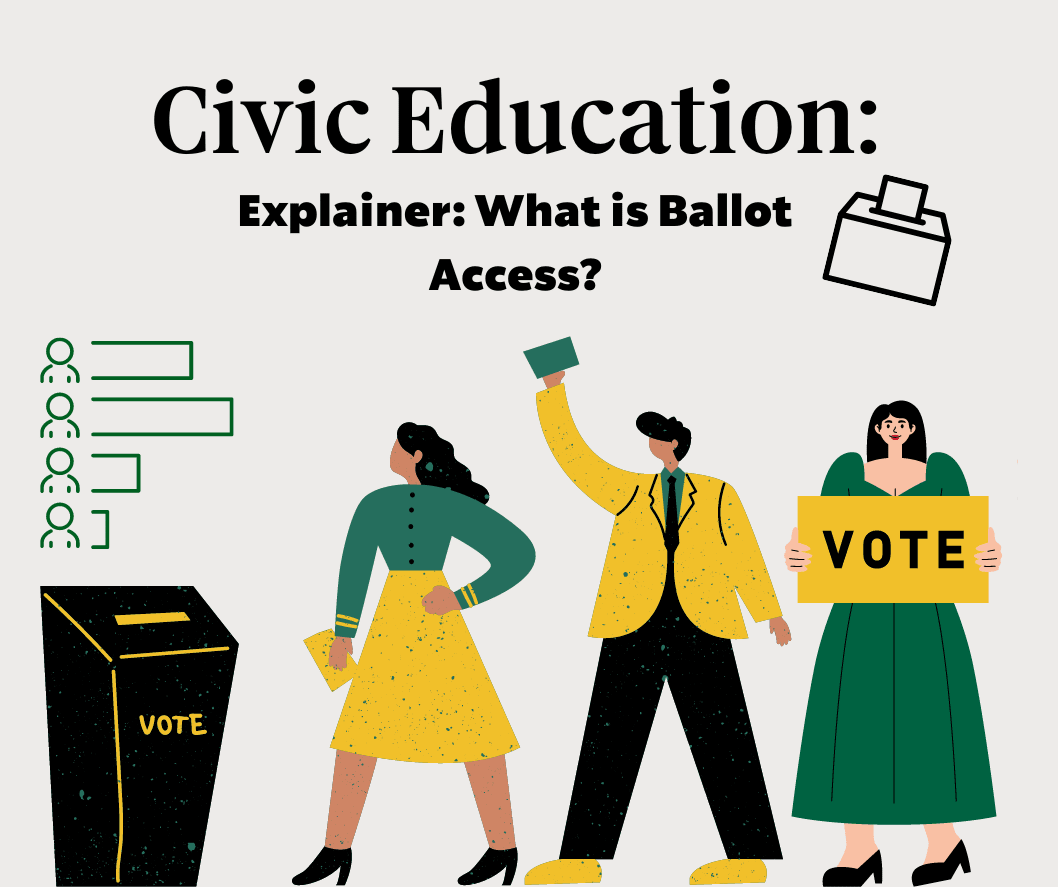
Explainer: What is Ballot Access?
How do you feel about your state's ballot access?
As election season rolls around, you might be curious: how do candidates actually get their names on the ballot and join the race for public office?
Let's find out what ballot access means and why it matters.
How to get on the ballot
-
The ballot is a document, either physical or electronic, that lists all candidates, parties, or issues in an election. It's how voters officially cast their votes and express their choices.
-
There are two main ways for candidates to get on the ballot. The first is to run as an independent candidate, which means they don't belong to any political party and have their own ideas and plans.
-
The second way is to join an existing political party, like the Democrats, or Republicans, or a third party, like the Green Party, which provides support, resources, and an established structure. Alternatively, candidates can start a new party and gather like-minded people to support them.
Rules for ballot access
- Every state and political party has its own set of rules for ballot access. Ballot access requirements are enforced to streamline elections and prevent overcrowding, confusion, or fraud.
- While the details differ, one common requirement is gathering signatures from registered voters. These signatures show that people want to see a candidate on the ballot and support their candidacy. It's a way to measure public support for those running for office.
Why ballot access matters
- Ballot access laws have a big impact on elections. The Supreme Court has ruled that the Constitution doesn't allow laws that unreasonably limit or fully prevent third-party and independent candidates from qualifying for the ballot.
- However, some state requirements can still make it difficult for independent candidates, lesser-known candidates, and new parties to participate, which limits choices for voters. Some states require "filing fees" for the ballot process, and strict filing deadlines also make it hard for outsider candidates and parties to participate. Incumbents often have more money and resources, giving them an advantage.
- On the other hand, more lenient regulations can encourage a diverse political landscape with new voices and ideas.
Understanding ballot access laws in your state and advocating for open ballot access is crucial to preserving an open and inclusive democratic system. It allows aspiring leaders to step forward and contribute to shaping our nation's future.
How do you feel about your state's ballot access?